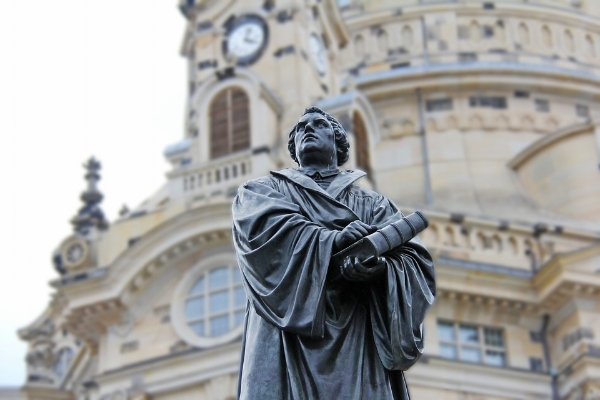In honor of the 500th anniversary of the Protestant Reformation, I'm taking some time to reflect on what the Reformation means today. If you'd like to learn more about the Reformation, see my post "Protestant Amnesia: What's So Important About the Reformation?"
At the time of the Reformation, there was a strong divide the “religious” and the “secular” person. There were those who had experienced the call (or been forced into it), and there were regular folks. There were priests and monks and nuns—and then there were the butchers, the bakers, and the candlestick makers.
There was a shared belief that those in the religious life were doing important spiritual work and had their entire existence set apart for God’s service. Everyone else was bogged down by responsibilities, shackled to earthly things like family and work. They could never aspire to be as holy as those in the religious life, and they were dependent on them, as people who were closer to God than they could ever be.
The Reformation turned this paradigm on its head. Monks and nuns were being called to leave their cloistered lives—and to marry. (Please do not underestimate how scandalous this was.) The early leader of the Reformation, Martin Luther, a former monk, married Katherina von Bora, a former nun, who escaped her convent hidden amidst old fish barrels. They were “tied down” with family life, with children, with guest lodgers, with scraping together an income. Instead of a lesser station, the Reformers saw family life, particularly the raising of children, as a godly and noble undertaking.
The same was true of our work. At the time, “vocation” was used to describe the sacred calling of monks and nuns. But Luther extended it to include normal, ordinary people, who also had a vocation—a calling—in their work. The work of the every day Christian—the plowing, the diaper-changing, the shoe making—matters.
The commonplace details of our lives aren’t to be escaped or retreated from. They are sanctified as we use them to better love and serve our neighbors. This love of neighbor is what glorifies God—not whether or not our work is explicitly religious.
Luther would say:
“The prince should think: Christ has served me and made everything to follow him; therefore, I should also serve my neighbor, protect him and everything that belongs to him. That is why God has given me this office, and I have it that I might serve him. That would be a good prince and ruler. When a prince sees his neighbor oppressed, he should think: That concerns me! I must protect and shield my neighbor....The same is true for shoemaker, tailor, scribe, or reader. If he is a Christian tailor, he will say: I make these clothes because God has bidden me do so, so that I can earn a living, so that I can help and serve my neighbor.”
So, my friend, if you go to work today with an awareness that your work is a calling, that through your normal life you can glorify God, you have the Reformation to thank.
If you find yourself subtly thinking that your “secular” work is less-than or a distraction, that the most important work is the explicitly “sacred” work in full-time ministry—I invite you to embrace what the Reformers reclaimed for us. That our God is one of the ordinary. That our work matters. That work is a sacred opportunity to fulfill the greatest commandment to love God and love our neighbor. That all of our existence is worship and an opportunity for ministry. That all of it can be made holy.
Soli Deo Gloria.

